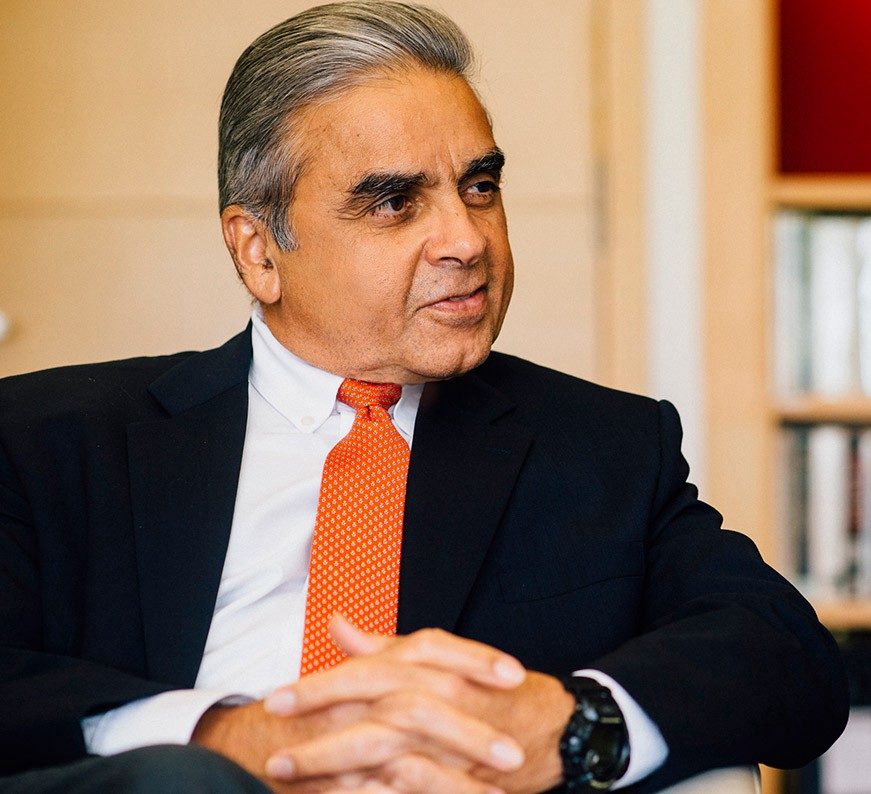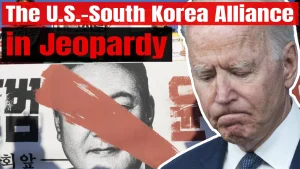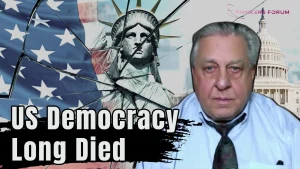2024: The Start of Another Surprise War?
The year 2022 produced a surprise war: Ukraine. And 2023 also produced a surprise war: Gaza. Anyone who believes that 2024 cannot produce another surprise war should have his or her head examined. The world still has many fault lines that could lead to a war.
In Asia, there are at least five fault lines we should monitor carefully (and, if possible, nudge towards peace, rather than war).
The most dangerous centres on Taiwan. This is the one issue that could bring the two superpowers, the United States and China, into direct conflict. US President Joe Biden is personally worried. The four times he said that the US would defend Taiwan were clearly intended as a form of deterrence, to signal that the US did not want a war there.
The year 2024 will be a dangerous one for Taiwan. The presidential election may result in an even more pro-independence candidate, Mr William Lai Ching-te from the Democratic Progressive Party, winning. The desire of the Taiwanese people to preserve their current autonomy is perfectly understandable. They want to keep their current lifestyles. Yet, each time they vote for a pro-independence candidate, they are paradoxically endangering their autonomy.
Few things in life are certain. But this is certain. If Taiwan declares independence, China declares war. The US knows this well. Hence, when the very pro-independence leader Chen Shui-bian tried in 2003 to tiptoe towards independence by trying to organise a referendum, then US President George W. Bush firmly said that he “opposed” it. If Washington could stick firmly to this position, there will be no war in Taiwan.
Sadly, 2024 will see a more dangerous presidential election in the US, likely pitting Mr Biden against his predecessor Donald Trump. The mercurial Trump will act even more erratically to get elected. Both the Democrats and Republicans will try to outdo each other in showing that they are more anti-China, more pro-Taiwan. Some Taiwanese may be deceived into thinking that they enjoy magnificent support in the American body politic. They should study history. Geopolitical pawns are always sacrificed. Just watch Ukraine today.
The second most dangerous fault line is between Asia’s two greatest powers: China and India. A skirmish at the border in June 2020 led to a loss of lives. Trust between China and India collapsed. Even today, it hasn’t been restored. Since Chinese and Indians live in peace with each other in Singapore, they should ask themselves how to protect their domestic harmony if a war breaks out between China and India.
The good news is that a major war doesn’t look likely. All the border talks between their militaries and governments have led to some reduction in tensions. While the Chinese government has described the border situation with India as “stable”, India’s Foreign Minister S. Jaishankar told journalists in August that both sides had made “progress” in talks on the border situation, notwithstanding the absence of a full resolution.
The bad news is that both sides are stepping up their military presence and capabilities at the border. The next accidental clash will result in even more lives being lost. And a huge geopolitical cloud will hang all over Asia if relations between China and India deteriorate in 2024.
The third most dangerous fault line is between India and Pakistan. Actually, it may be the most dangerous since many well-informed nuclear war specialists believe that the conflict closest to having a nuclear trigger pulled is the one involving India and Pakistan. This is why then US President Bill Clinton and his administration decided to intervene decisively when the Kargil conflict happened in 1999.
Wise American diplomacy helped. So too did the commanding influence of American power in the late 1990s in the unipolar era. Now, we live in a multipolar world. American influence has diminished. It has tried hard to bring peace between Israel and Palestine and failed. Effective peace-making requires decisive power.
The fourth most dangerous fault line is between China and Japan. The trust deficit between China and Japan is even greater than that between China and India as most Chinese haven’t forgotten the atrocities committed by the Japanese before and during World War II. An astute Japanese administration would strive to keep relations with China on an even keel.
Indeed, on the Diaoyutai/Senkaku Islands dispute, things were relatively calm until the Japanese government, led by then Prime Minister Yoshihiko Noda in 2012, decided to “nationalise” three of the disputed islands by buying them from their private owners. China became angry because Japan was changing the status quo. A wise Japanese government could revert to the “status quo ante” to calm the waters, but democratic politics in Japan (and elsewhere) rewards nationalist politicians, not temperate thoughtful leaders. Hence, this territorial dispute will remain “hot”, providing potential for a dangerous head-to-head confrontation.
The fifth most dangerous fault line is the closest to South-east Asia, and it’s the newest: the tensions between China and the Philippines in the South China Sea. These tensions have been surprising. Initially, the Marcos administration tried to build close ties with China, taking advantage of the fact that President Ferdinand Marcos Jr had met Mao Zedong and Zhou Enlai as a teenager when he accompanied his mother Imelda Marcos on her visit to China in 1974 to establish formal ties between the Philippines and China. A famous photo was taken on this occasion of Mao kissing Imelda’s hand, after which her son excitedly kissed Mao’s cheeks. Chinese respect individuals who were close to Mao.
Then something went wrong. The tussles in the South China Sea have become more frequent. Some members of the Armed Forces of the Philippines are happy with these tussles as they rebuild the traditional close relationship between the US and Philippine armed forces. Still, while it’s understandable for the Philippines to build close ties with the US, it can learn a lesson or two from Vietnam, which has successfully built close ties with both the US and China despite similar territorial disputes in the South China Sea. Indeed, most Asean countries are trying hard to preserve good relations with both powers.
Ukraine and Gaza are geographically far from South-east Asia. In theory, we shouldn’t be affected by the conflicts there. But we are. They do cloud our future. Imagine how much worse it would be if major conflicts were to break out closer to home. The psychological and material impact would be far greater, with damaging knock-on effects on investment confidence and economic growth.
Given all these fault lines which could generate a “surprise” war in 2024, the logical response of Asian countries should be to proactively step up their peace-making or war-prevention efforts. But this is where the core problem lies. Despite the life-or-death nature of peace, there are no recognised or established guardians of peace in Asia. Globally, there is a council of “The Elders” which was set up by Nelson Mandela in 2007. It was led effectively by Nobel peace laureate and former United Nations secretary-general Kofi Annan from 2013 until his death in 2018. Now, Mrs Mary Robinson, the former president of Ireland, runs it. Currently, no similar group has been set up in Asia even though there’s a pressing need to fulfil the same purpose as The Elders: to “help resolve some of the world’s most intractable conflicts”.
Perhaps this is one area where Asean can take the lead. When Asean wanted to work out a charter, it turned to a group of wise men (including Mr Fidel Ramos, former president of the Philippines; Mr Ali Alatas, former minister of foreign affairs for Indonesia; and Professor S. Jayakumar, former deputy prime minister of Singapore) to draft it.
The tradition of using wise retired leaders to solve some intractable problems within Asean could perhaps be revived to defuse the tensions from some of Asia’s existing fault lines, nudging the region towards peace rather than war. Until that day comes, the Asian Peace Programme will continue to make small contributions to keep Asia at peace, hoping that its acupuncture method of small suggestions will strengthen the culture of peace in the region.



